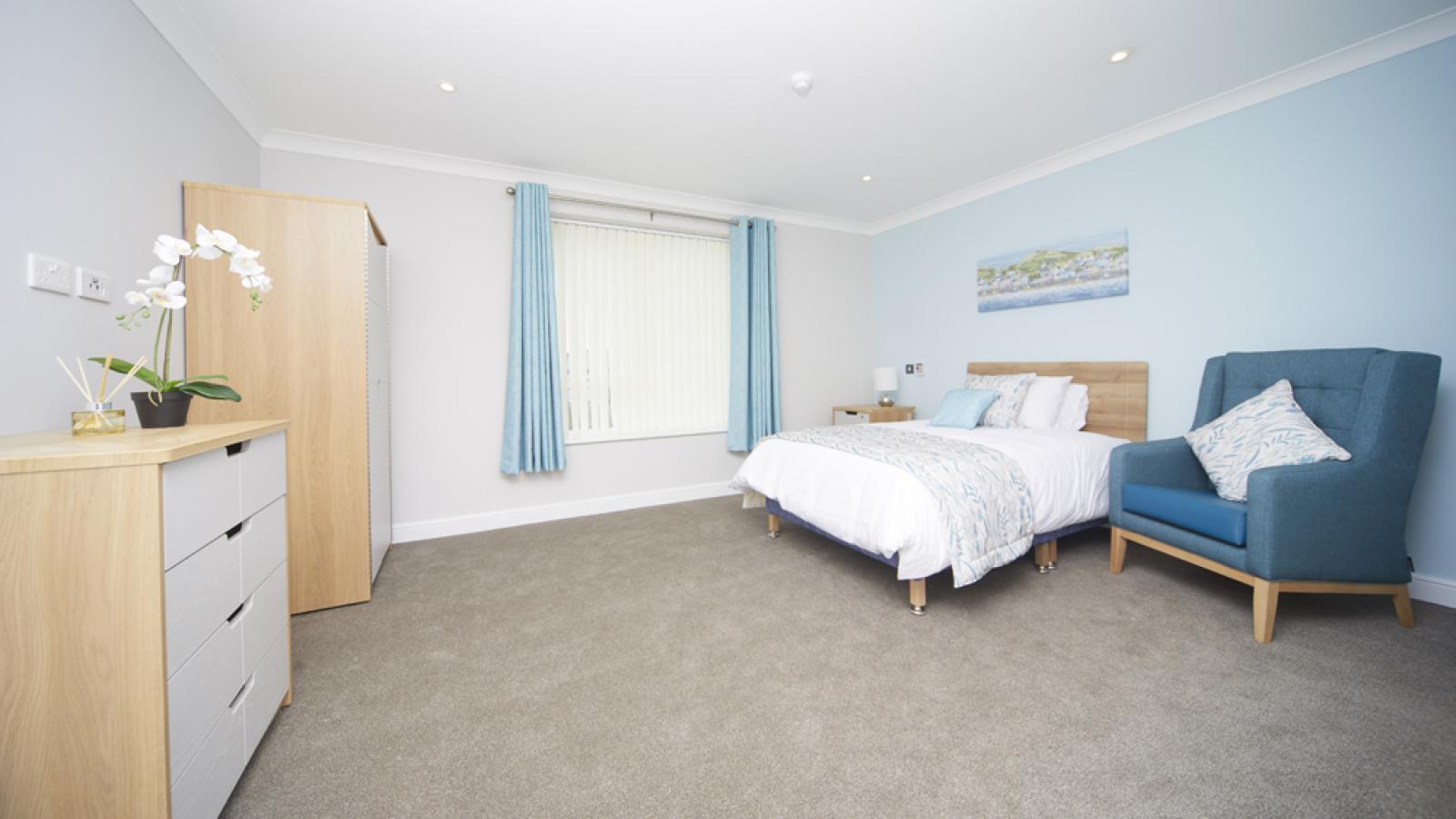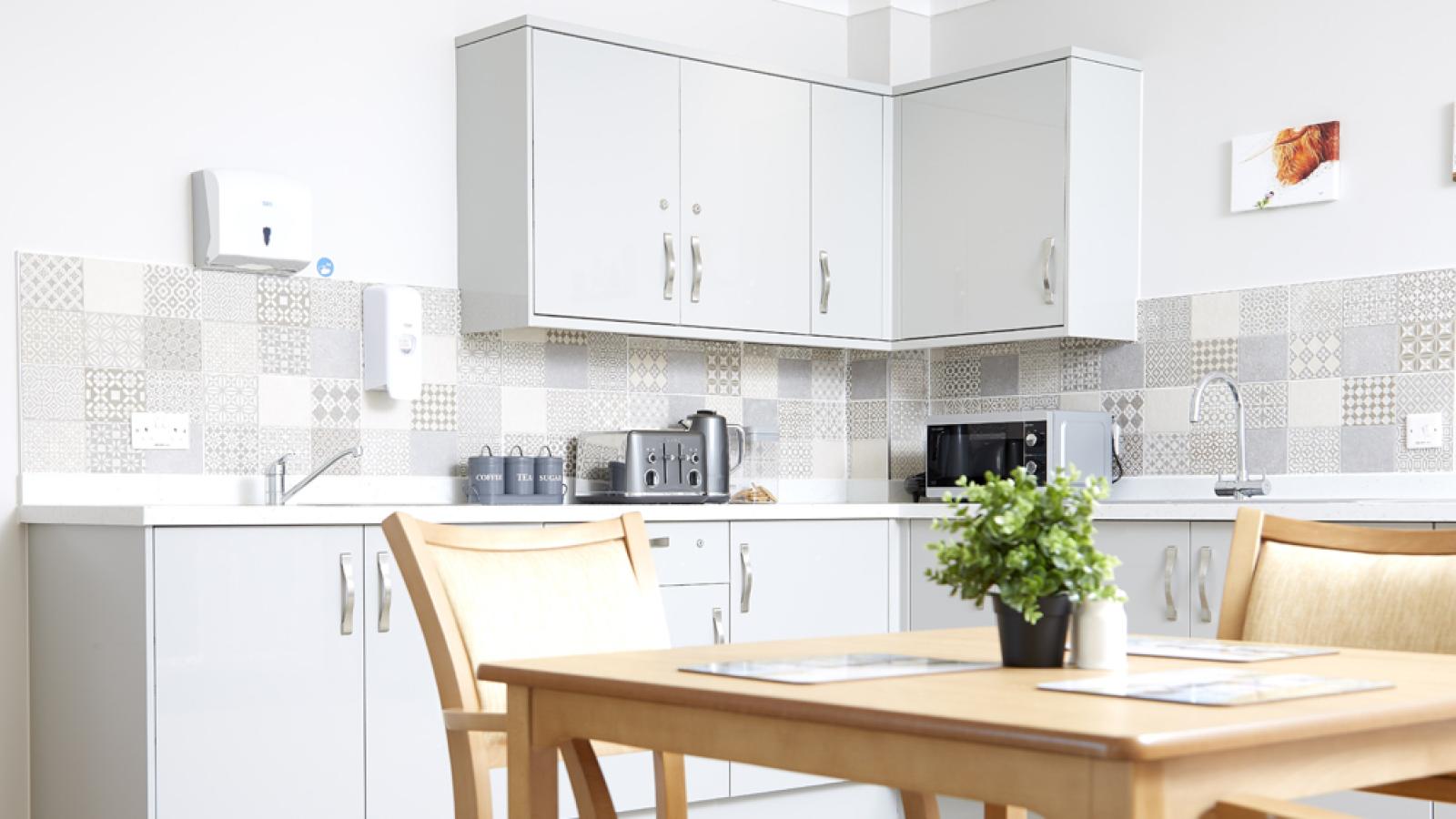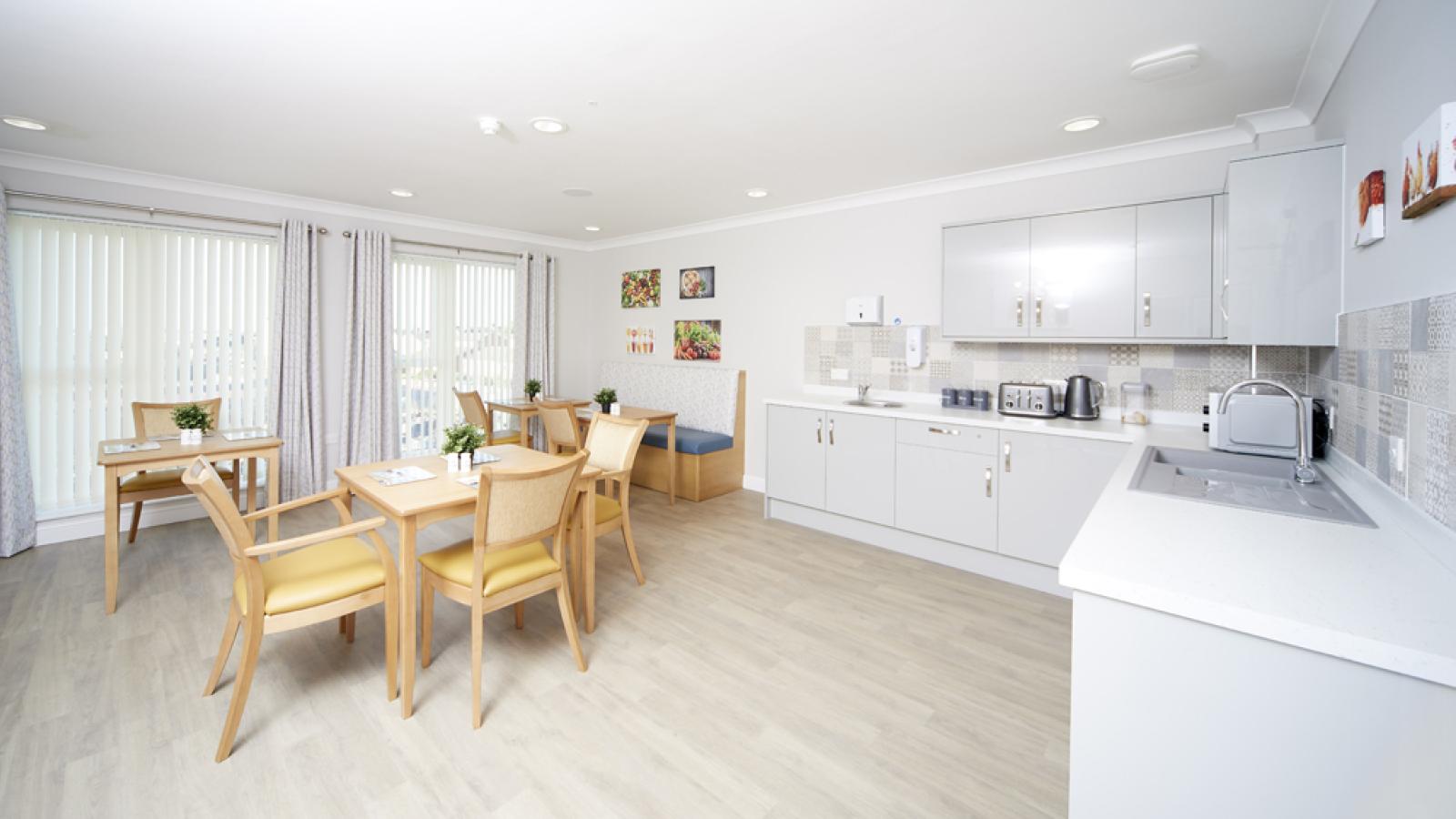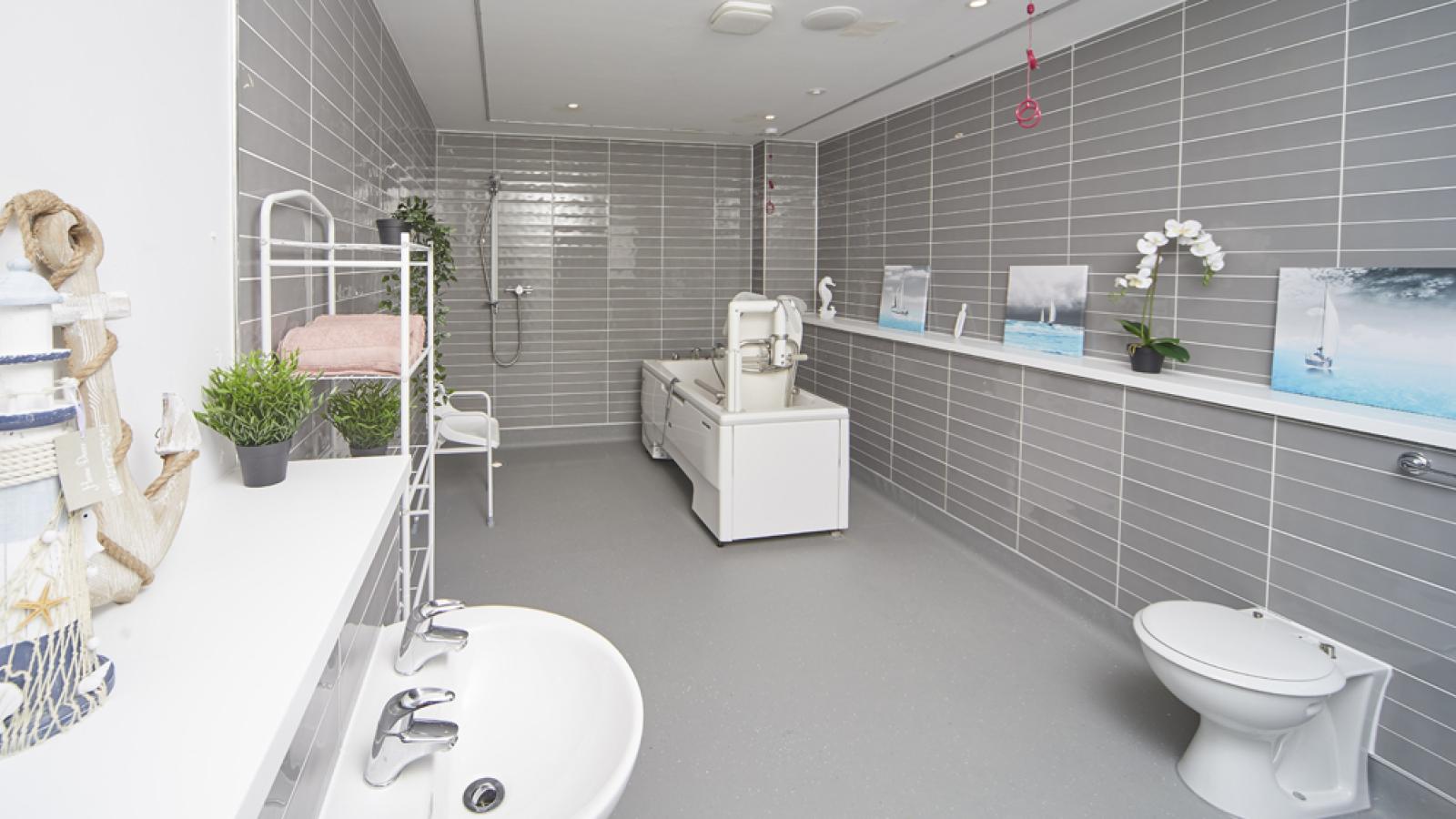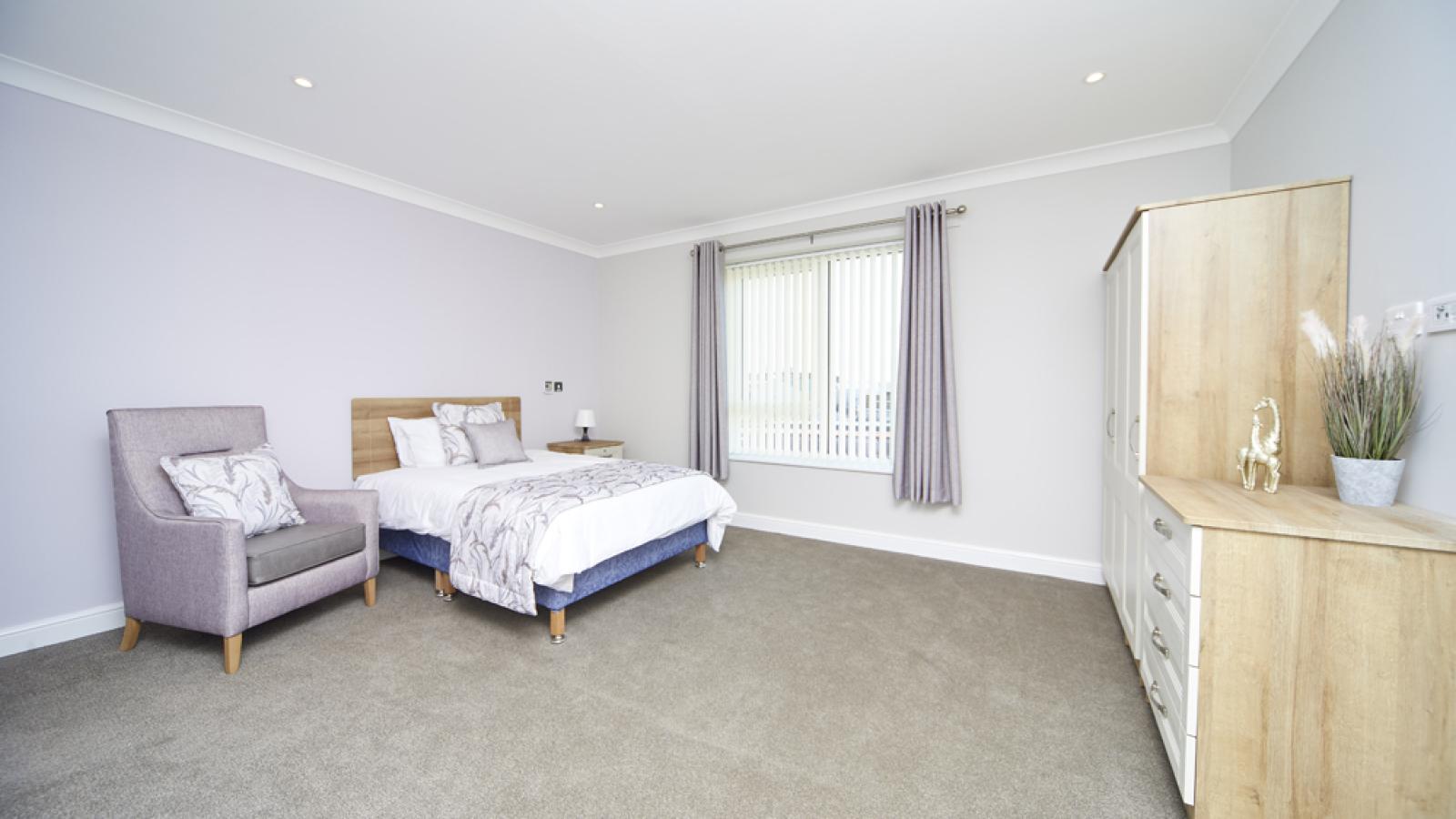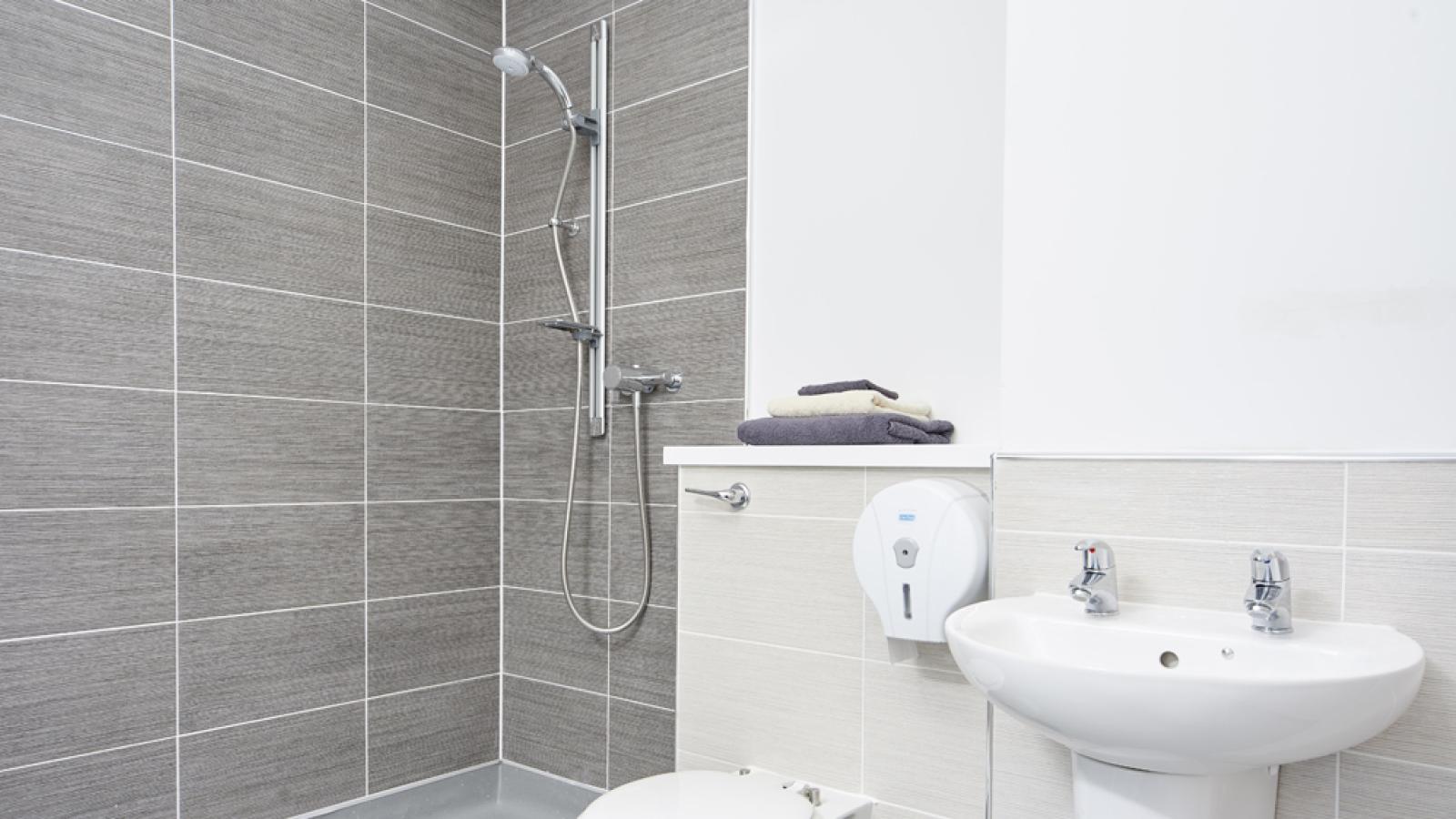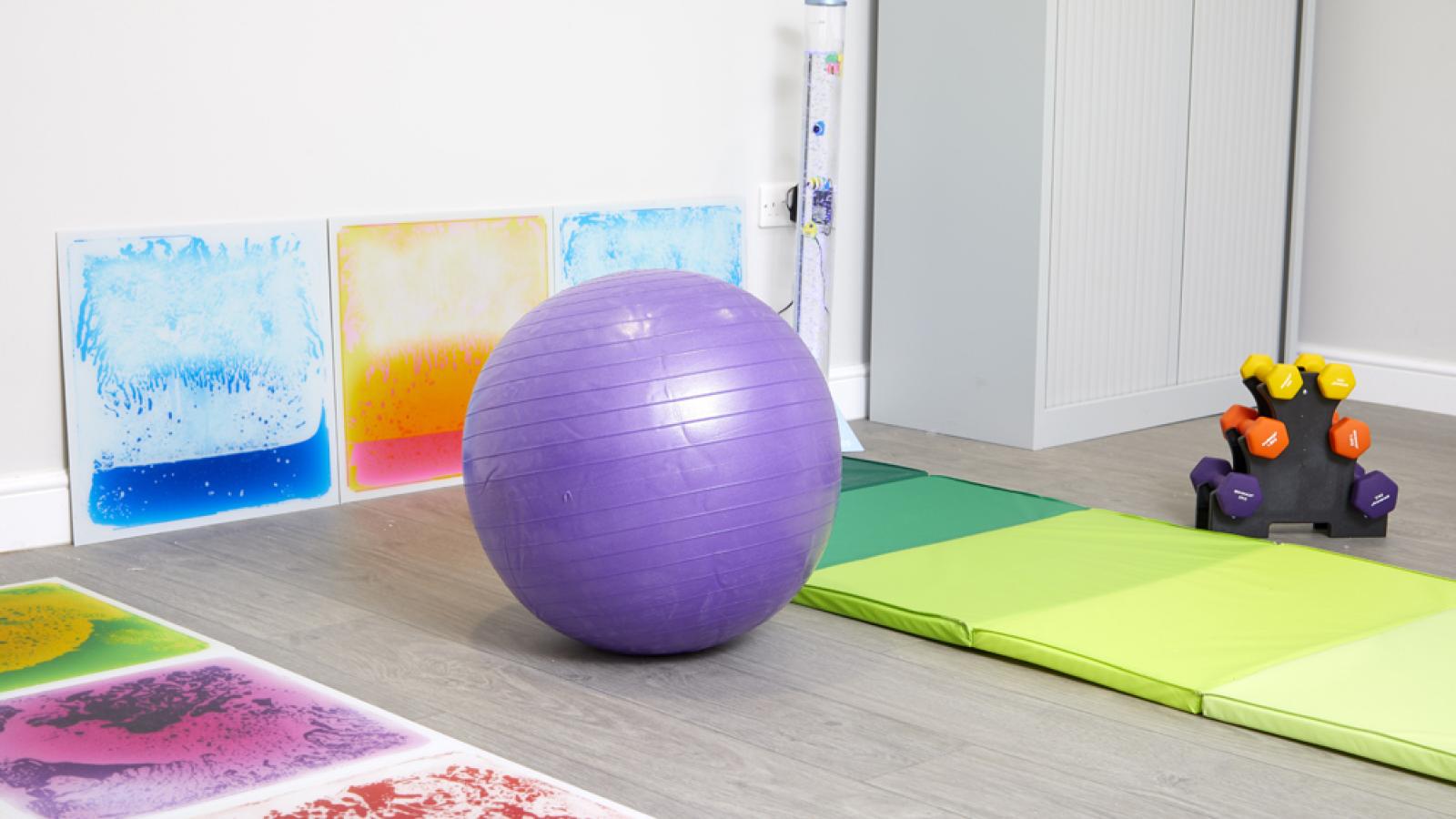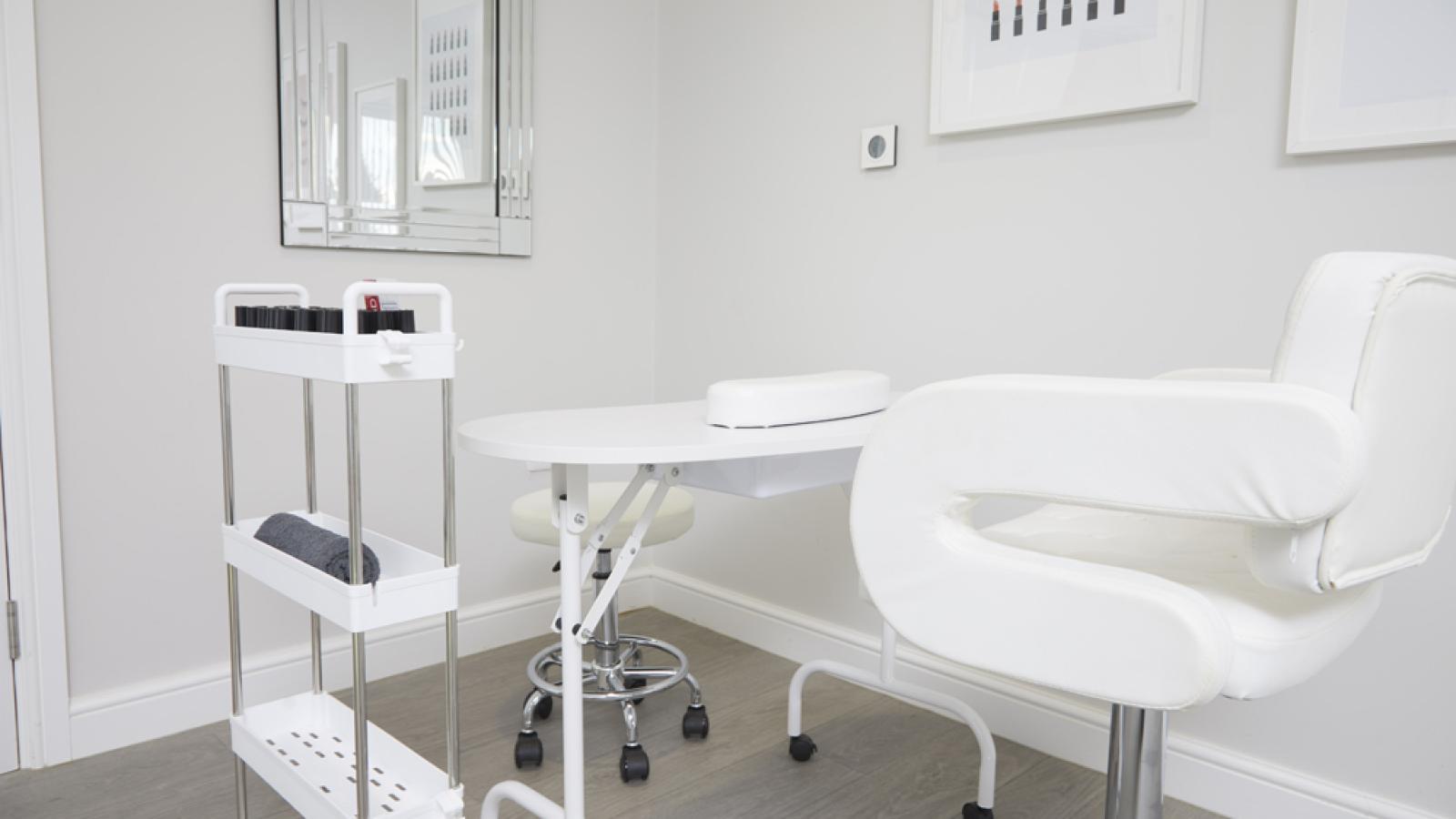Complex care in Seacombe, Wallasey
Welcome to Edgewater, where we provide nursing care for adults living with complex needs arising from mental health, neurological, and physical health conditions.
Located on Alfred Road in Seacombe, Edgewater has 30 bedrooms across three purpose-built units, creating a homely and supportive environment that’s more responsive to individual needs.
We’re dedicated to making every day better for the people we support, helping them lead meaningful lives and achieve their personal goals.
Our trained team provides high acuity, nurse-led care services, particularly for individuals with secondary diagnoses and co-morbidities, or those who’ve experienced previous failed placements.
Whether you’re a healthcare professional seeking a complex care placement, or you’re exploring care options for a loved one, view our services below or contact us to find out more.
Our care
The people we support at Edgewater would often be in a hospital or higher acuity setting if not placed with us.
Our care enables them to stay in the community, closer to their loved ones.
Registered with CQC for:
Caring for complex conditions:
Look around Edgewater
Edgewater has 30 bedrooms, each with an en-suite, across three units.
With this small group living, we’re able to provide a homely and supportive environment that’s more responsive to individual needs.
The home has communal dining and living spaces, an activities hub, therapy room, beauty salon and a large accessible garden.
We offer a variety of accessible baths and showers for a range of mobility needs.
Edgewater is near local amenities and transport links, helping people stay connected to the community.
Profile of need by unit
Snowdrop Unit
Snowdrop Unit supports adults living with complex clinical needs requiring ongoing, coordinated care.
With two Registered Nurses on duty during the day and one at night, we provide high-level nursing care - often supporting people who have transitioned from hospital or are living with the advanced stages of conditions like Huntington’s disease or Parkinson’s.
Most people here have a primary neurological condition and co-occurring health needs such as diabetes, dysphagia, epilepsy, respiratory conditions, and/or require interventions like catheters, CPAP, PEGs, tracheostomies, and ventilators.
Care also includes regular repositioning, skin integrity checks, and close monitoring to reduce the risk of pressure ulcers and promote comfort and health.
Two bedrooms are equipped with ceiling track hoists for bariatric care.
This approach goes beyond standard residential or nursing care, offering a clinical yet engaging environment where people can live well, participate in meaningful activity, and maintain quality of life.
For those with progressive conditions, we support advanced care planning to ensure people’s wishes for end-of-life care are known and respected.
Daffodil Unit (female-only)
Daffodil Unit is a female-only unit for older adults living with a primary diagnosis of dementia who present with behaviours of concern.
The team includes General and Mental Health Nurses, enabling us to support both mental and physical health needs - including support with catheters and nasogastric tubes - that are beyond the scope of mainstream care providers.
The environment is thoughtfully designed in line with the University of Stirling’s ‘Environments for Ageing and Dementia Design Assessment Tool (EADDAT),’ creating a space that promotes comfort, independence, and overall wellbeing.
As dementia progresses, we provide person-led advanced care planning, along with palliative and end-of-life care to ensure dignity, comfort, and continuity.
Iris Unit (male-only)
Iris Unit is a male-only environment for younger working-age adults living with neurological or mental health conditions such as acquired brain injury, dementia, or stroke - and who present with behaviours of concern.
The team, including Learning Disability and Mental Health Nurses, provides structured, evidence-based behavioural support.
This includes functional assessments, personalised support plans, proactive strategies, skill development, and safe reactive responses - all underpinned by our Exemplar Positive Behaviour Support approach.
We provide individualised staffing and observation levels, including 1:1 or 2:1 support when needed - for example, during personal care that may involve restrictive physical intervention.
Over time, we often see a reduction in behaviours and observation needs as people settle into a consistent, person-centred routine.
Many people also have co-occurring, medium to low-level physical health needs, which we manage as part of our integrated approach.
Join our team and make a difference at Edgewater
No matter who you are or what experience you have, there are many ways you can make a difference at Edgewater.
The people who live in our home need care from a variety of colleagues.
Our roles range from Registered Nurses and Health Care Assistants to Housekeepers and Cooks, and every member of our team has a vital part to play.
We’re proud to be a National Living Wage employer, offering stable employment in an inclusive, values-led environment.
Getting to Edgewater
Directions to Edgewater
Edgewater is a short drive from the M53 and other major roads including the A60 and A617.
If you're travelling north on the M53, take the exit for A5139 towards All Docks.
Continue on the A5139 for 2 miles then turn left onto Oakdale Road.
Turn right onto Vernon Avenue, then right again onto B5144.
Take a slight left onto Wheatland Lane, then turn right onto Alfred Road.
Edgewater is on your left.
There are limited parking spaces in the home’s car park.
Public transport to Edgewater
The home is a short walk from several bus stops.
Wheatland Lane bus stop (stop ID: meramdmp) which is accessed by buses 409 and 411.
Corbyn Street bus stop (stop ID: meramdmt) which is accessed by buses 409 and 411.
There's also a train station in the local area.
Hamilton Square - 1.1 miles away (27 minute walk or 5 minute drive).
Explore care homes across England for adults with complex needs.
Get in touch to discuss a complex care placement for someone you support.
Explore rewarding roles with training, support, and chances to grow.
Reach out with questions about care placements, jobs, or general enquiries.

